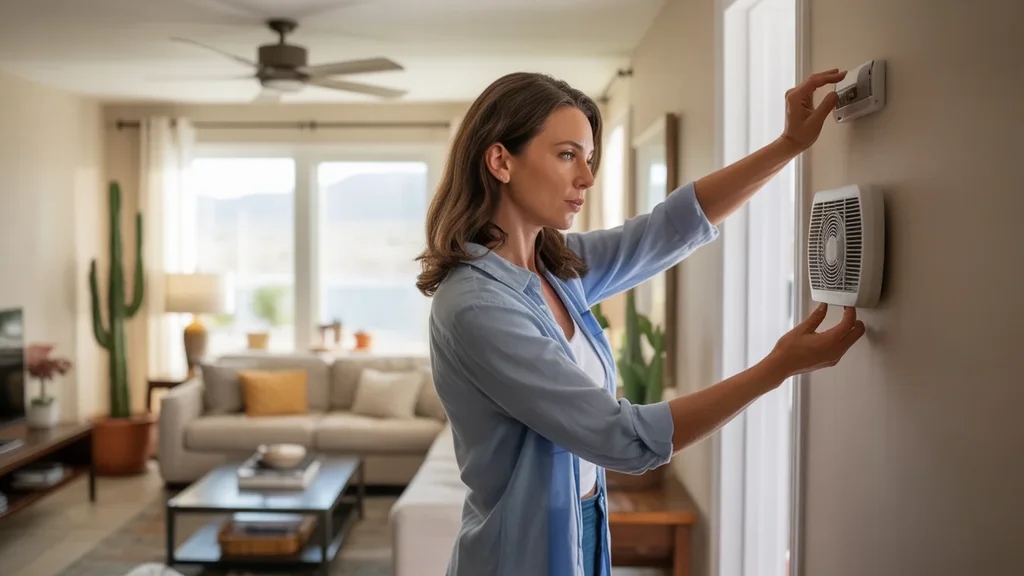Understanding Utilities in Las Vegas
Here’s what typical utility costs look like in Las Vegas. For most households, monthly utilities include electricity, water, trash, natural gas, and recycling. The average family in Las Vegas spends between $200 and $300 per month on their utility bills.
Utilities cost in Las Vegas can vary quite a bit depending on the size of your home, number of occupants, and seasonal weather patterns. Electric bills tend to be highest in the scorching summer months when air conditioning is a must. Water usage also peaks in summer due to landscape irrigation.
Table: Monthly Utility Estimates
Wondering how much your monthly bills might run? Here’s a quick breakdown for a typical home in Las Vegas:
| Utility | Estimated Monthly Cost |
|---|---|
| Electricity | $100 – $200 |
| Water | $50 – $100 |
| Natural Gas | $20 – $50 |
| Trash & Recycling | $15 – $30 |
| Total | $185 – $380 |
Estimates reflect a mid-size household in a single-family home.

Seasonal Utility Changes in Las Vegas
While utility costs remain relatively steady in spring and fall, extreme temperatures in summer and winter tend to drive up energy usage. In desert cities like Las Vegas, cooling can increase electric bills 2–3x in June through September compared to milder months. Electric bills often double in July compared to April.
Heating costs are less pronounced but still noticeable, mainly affecting natural gas bills December through February. While not as dramatic as summer spikes, winter utility costs for a typical Las Vegas home may rise 20-50% to keep indoor temperatures comfortable.
How to Save on Utilities in Las Vegas
Looking for ways to keep utility costs under control year-round? Consider these tips:
- Sign up for off-peak billing programs to get lower electricity rates during non-peak hours
- Take advantage of rebates and incentives for installing solar panels
- Use a smart thermostat to optimize heating and cooling schedules
- Plant shade trees near your home to block summer sun
- Upgrade to energy-efficient appliances, especially air conditioners and refrigerators
🏆 Tip: Check if your utility provider offers rebates for energy-efficient AC units. You could save hundreds on a new system plus lower your ongoing bills.
FAQs About Utility Costs in Las Vegas
What is the average electric bill in Las Vegas during summer?
For a typical single-family home, summer electric bills often range from $150 to over $300 per month, depending on the size of the home and AC usage. Bills tend to be highest in July and August.
Do HOAs cover any utilities?
In most cases, HOA fees do not include utilities like electricity, water or gas. However, some Las Vegas communities, especially condos and apartments, may cover trash and recycling costs. Review your HOA agreement to confirm.
Is water more expensive in Las Vegas than nearby cities?
Water rates in Las Vegas are actually lower than many surrounding cities in Clark County. However, the dry desert climate means irrigation needs are higher, so overall water bills tend to be similar to other areas.
Smarter Utility Planning in Las Vegas
While utility costs can add up quickly in Las Vegas, especially during the sizzling summer, there are plenty of ways to manage your bills. Understanding the key drivers behind your electricity, water and gas charges is the first step to keeping summer energy bills in check.
It’s also wise to plan ahead for internet and streaming costs, which are increasingly essential utilities for Las Vegas households. Being aware of hidden fees that can catch Vegas residents off guard, like bulk trash pickup charges, can also help you stick to your monthly budget.
With a little research and smart usage strategies, you can enjoy all the comforts of living in Las Vegas without breaking the bank on utilities. Knowing what to expect and taking advantage of local programs can make a big difference in your bottom line.
